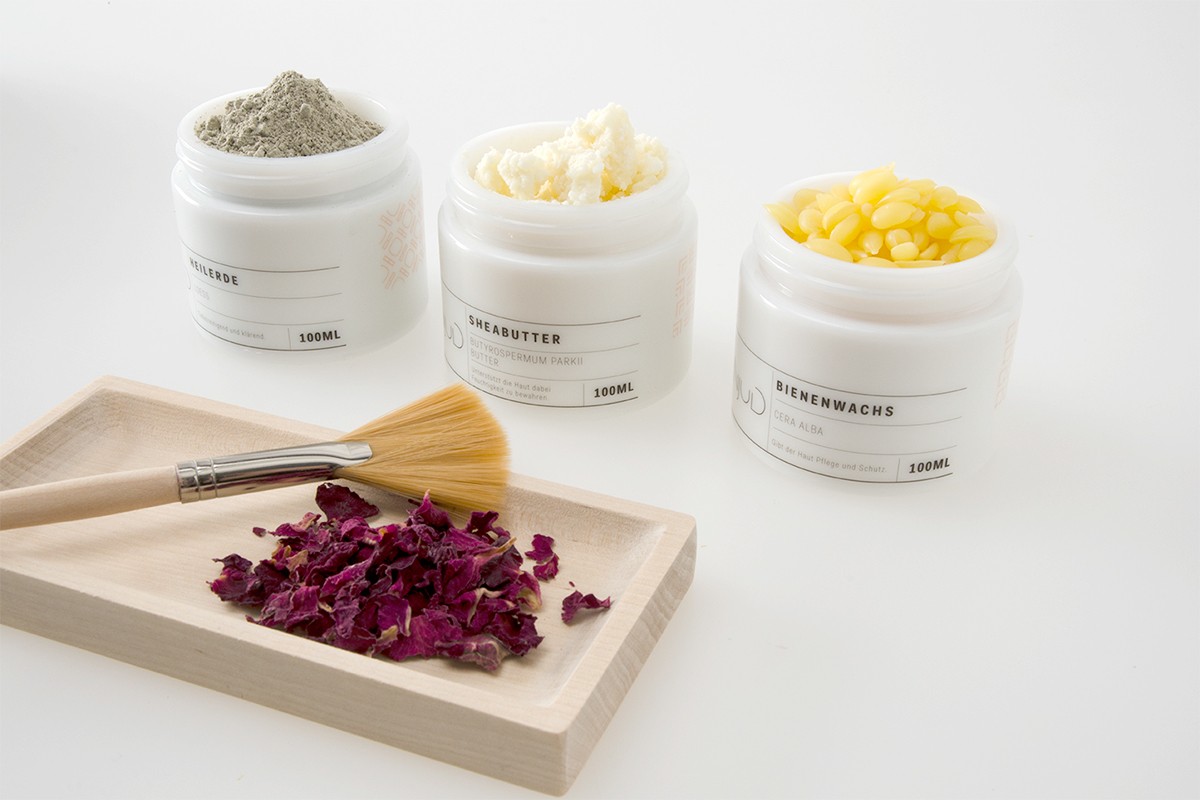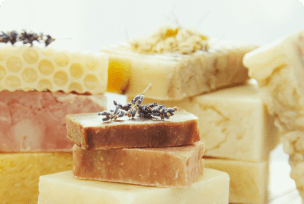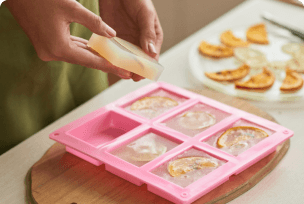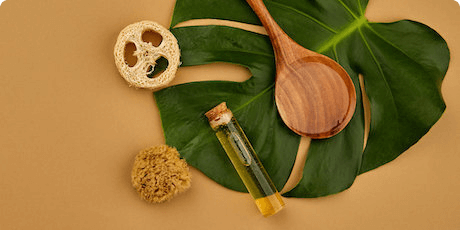Tim uses data and trends from the likes of market-leading brands, manufacturers and research companies to understand where customers should focus on future new product development.

When setting up in any business, there are many factors to take into consideration. Soap making is certainly a booming sector and according to IBISworld the size of the soap and detergent manufacturing industry in the UK measured by revenue currently stands at £1.9bn in 2021. The UK market is expected to increase 10.2% in 2021 and has grown 2.6% year on year on average since 2016, increasing at a rate faster than the economy overall. In this comprehensive blog, we take a look at everything from legal considerations and certification to branding, the benefits of wholesaling and how to upscale from crafting to a full-blown business offering. Hopefully, whatever stage you’re at there will be some useful guidance and tips to benefit your plans.
Regulations & Legislation
Understanding the rules and regulations is a critical part of any business launch and this is a question asked frequently. The response is consistently the same. Meeting government and legal regulations when selling cosmetics is a minefield – with different rules denoted by location, product types and ingredients. Whilst we’re not qualified to offer independent advice on this subject area as we do not operate within the same regulatory systems as a finished cosmetic product we can offer useful guidance to hopefully get you off to the best possible start. Some of the organisations are detailed below. We’ve highlighted just two of our largest but if you’re looking for assistance beyond these territories please get in touch and we’ll look to guide you in the right direction.
UK & Europe:
- The European Commission: Main regulatory framework for selling finished cosmetic products (including soap) in the European market
- The Guild of Craft Soap and Toiletry Makers: An independent and non-commercial support network where you can ask advice, read articles and talk to peers in a similar situation
USA:
- FDA: The FDA is a government organisation that also regulates the cosmetic industry. This handy checklist from the FDA gives answers to all the questions you may have about ensuring your products are meeting regulations and legal requirements.
- Handcrafted Soap and Cosmetic Guild: A trade association set up to help with legislation and regulation support for soap makers and businesses.
Australia:
- Department of Health: Australia’s governing body on selling cosmetics is the National Industrial Chemicals Notification and Assessment Scheme (NICNAS)
Mexico:
- COFEPRIS: The Mexican health authority that oversees the regulations of chemicals, ingredients and packaging when selling cosmetics in Latin America.
Canada:
- Health Canada: Canada’s governing health body oversees the regulations and requirements cosmetics companies must meet before selling produce.
We’ve just picked our five largest marketplaces across the world. However, if you would like further advice, then please get in touch and we can try and guide you in the right direction.
 Image Credit: Cosmetic Design Europe
Image Credit: Cosmetic Design Europe
Products
Ensuring your product or range is perfect is also a crucial step to achieve before going to market. Consumers are more demanding than ever before and have high expectations when it comes to qualities such as packaging, eco credentials, quality and value. The team at Stephenson is very experienced in meeting all these criteria and has a wide range of materials and resources to provide the inspiration you might need, including:
- Recipes: we’ve collaborated with so many crafters over the years and built up a library of soap recipes that you can try for yourself!
- Guide Videos: A new addition to our resource armoury, see for yourself how to process our soap bases.
- Blog: Information on the global cosmetic and soap market.
- Pinterest: Thousands of pictures of soaps we’ve hoarded from around the internet!
- Facebook: Regular competitions and a place to meet friendly fellow soap makers.
- Newsletter: Featuring latest advice, insights and recipes every month straight to your inbox.
Certification
There are lots of organic certification bodies around the world, and trying to navigate this as a new business owner can be daunting. It can be confusing to our customers what each certification means and how they take certified bases and create a certified finished product.
A good starting point is COSMOS - the organic and natural certification for cosmetics. The COSMOS-standard signature is a trusted consumer guarantee for organic and natural cosmetics. Over 24,000 products in 70 countries carry the COSMOS ORGANIC or COSMOS NATURAL signature. Over 10,000 ingredients carry the COSMOS CERTIFIED signature and over 7,000 raw materials carry the COSMOS APPROVED signature.
Branding
Branding is essential to create a professional looking, appealing product. In addition to being creative with making the product, it’s also important that this translates to the branding too. Some basic branding essentials to consider:
- Impact and standout: Logo, colours and wording
- Consistency: Keep visual branding consistent across every product and channel
- Packaging: You packaging speaks volumes about your product, use it as a sales tool. Eco packaging is a huge sales driver and in the move to net zero materials such as plastic are a big turn off to more demanding consumers.
There is so much more to creating and building a brand than a logo or a strapline. It’s a combination of elements – from packaging, to reputation and customer service. Creating positive, personalised customer experiences are the essence of good branding and best practice. But don’t be fooled - adding value to your customers’ experience takes hard work and commitment. The most successful brands build relationships with their target audience and as customers we know what to expect from our favourite brands. It’s all about creating a differential from other competitor brands vying for consumers’ hard-earned cash. This is brand loyalty and ultimately what you should be aiming to achieve with your brand.
 Image Credit: Various, Pinterest
Image Credit: Various, Pinterest
Pricing
Once your product or range is ready to sell, it’s important not to sell yourself short. Try to set the correct price point, making sure that all costs are being covered plus some extra profit in recognition of all your efforts! The easiest way to do this is to figure out your total costs of creating one product, and then add a margin of your choice. This leaves you with a safe price, as you know that you are making money on each item you sell.
Selling
Once you have a product that is legally ready to sell, that is where the real journey begins! All of the hard work and effort you have put into setting up your business needs to be sustained in order to create a business. Sales can be the most daunting stage of owning a business.
Consider wholesale
Wholesaling your soap might seem like you wouldn’t make enough profit to make it worth all the effort but it can prove to be a really good strategy. Here’s some reasons why.
Time is crucial and so are economies of scale
Making a large batch of soap for a retailer takes around the same amount of effort and time as making a small batch of soaps for individual customers. By the time you have got everything prepared, it is not much more difficult to scale up your ingredients and recipe in volume. Producing in bulk makes it possible to increase volumes without any major investment in equipment, premises or staff.
Marketing
Once you have sold your stock, your customers are then responsible for retailing your soap. This allows you to take full advantage of their marketing resources and customer base, meaning you get more time for doing what you’re really good at - making soap!
Sell to the end customer
The first step is to decide where you’d like to see your soap stocked. Is it best suited to online businesses or retail outlets or a mix of both? It is important to start off slowly to free up the capacity to cope with an uplift in demand, so the perfect pilot scheme would be to approach local shops and stores where your product would fit in. Once you have gathered some sales momentum, you can start approaching bigger retail outlets and online stores.
Professional approach
Be professional! After identifying potential stores and marketplaces suited to your product, it’s time to approach the store managers or owners in a highly professional manner. Don’t just turn up unannounced! Call ahead to arrange a convenient time to visit, having already done your homework, preparation is everything! Use negotiation and a tempting introductory offer to entice potential stockists and in trying to minimise risk on their part, this will help to build a profitable, long-term business relationship. Remember there is likely to be potentially hundreds or thousands of competitors aiming to achieve the same success as you so it’s critical to make an impression and stand out from the crowd.
Price
Negotiation is key in winning over busy retailers. Successful negotiation results in a ‘sweet spot scenario’ where you are making enough money from the sale to cover all costs and the retailer can make a decent profit. Do this and it’s a win-win situation all round!
Display
Don’t forget you are still selling to your end customer after you’ve got the retailer on board with your product. Branding, packaging and retail display must be appealing to the customer if the opportunity to sell is to work effectively. As well as increasing product sales, the retailer will be more likely to purchase your soap to sell in their store if it looks great and has strong shelf appeal. If it’s a good seller, hopefully they will be back for more next time.
Serious about soap making? Take your hobby to the next level
Many people start soap making as a hobby with little or no intention of selling their creations. Maybe you are opting for a handmade alternative to try and avoid the mass of chemicals used in processing modern soap products, or maybe you simply use soap making as a creative outlet. Whatever your reasons, if you enjoy making soap enough, then it is inevitable that you’ll start to think about how you can change the hobby into a business, and make money doing what you love!
Research
Before you quit your day job and go all in, never underestimate the power of research. Look at competing companies in your area. You need to identify the gaps in the market and what room there is for your product. There’s no point in going into direct competition with someone and creating a similar business, as you are simply creating an issue for yourself before you start.
Plan
Once you feel you have a good understanding of the marketplace, competition and industry regulations, you will naturally want to start to create a plan. This will include some of your research as a background to your business plan as well as target retailers and stockists, budgets, cost to produce and sales forecasts. It’s always worth getting a second opinion on your plan from a professional or someone who has already been through the same journey.
Launch and ongoing marketing
Your business plan and products can be launched as soon as you are ready! Start by figuring out packaging and branding. Next, build up stock – but not too much! You need products to start selling, but don’t invest so heavily that you end up with waste. At first you almost want to be creating to meet demand.
Sales generation
Another stumbling block where people struggle with their soap making business is the sales. This can either be down to lack of confidence or understanding, so it’s not by no means insurmountable. The easiest first step is to create a community. Asking friends and family for their support, and interacting with your local environment, can be a familiar and natural lead into the sales process. There is a multitude of options and places you can sell your soap product, it really is just a case of tapping into these successfully.
Stephenson Supports Your Business
At Stephenson, we can offer you advice and support on starting your soap making business so don’t hesitate to get in touch if you have any doubts, queries or questions. You can also find the latest information, tips and trends on our website and social media channels. If you’d like to speak with us and would be interested in one of the Stephenson team by getting in touch then please complete your details here and we’ll be delighted to help in any way we can.


























